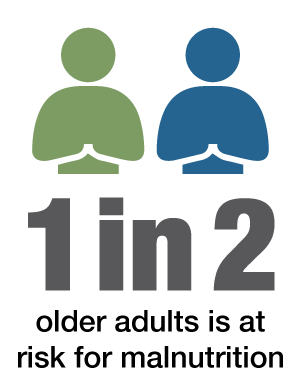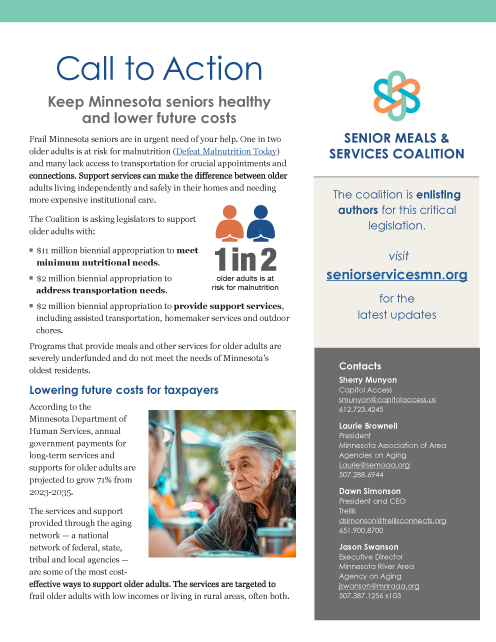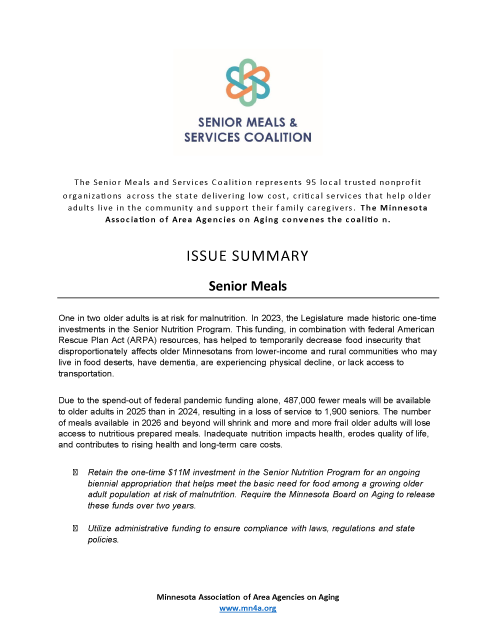The 2025 Minnesota Legislature is in session, and the Senior Meals & Services Coalition has a critical funding request before them.
Programs that provide meals and other services for older adults are severely underfunded and do not meet the needs of Minnesota’s oldest residents.
That’s why m4a has again convened the Senior Meals & Services Coalition, which represents more than 90 trusted nonprofit organizations across Minnesota.
We need your help to get funding passed this session. Please contact your Minnesota House and Senate members and ask for their support.
Download Call to Action | Issue Summary
Background
Programs that provide meals to older adults are severely underfunded and ARE NOT meeting the needs of the oldest among us. Funding for the Minnesota Senior Nutrition Program has not increased in the past 20 years, while the need and costs for meals have grown exponentially.

According to Defeat Malnutrition Today, as many as one in two older Americans is at risk for malnutrition. Lack of nutrition puts people at higher risk for illness, longer lengths of hospital stays and a higher level of readmissions. Malnutrition is complex and driven by multiple factors, but the lack of access to nutritious meals is a key component.
With severe workforce shortages in care settings, nutrition programs help make it possible for older adults to stay safely in their homes. Meals programs also reduce social isolation for older adults. Congregate meals create opportunities for gathering with others. Home-delivered meals provide older adults with a regular, in-person connection with a friendly face.
During the COVID-19 pandemic, Minnesota has seen a dramatic increase in meal demand and federal dollars to help meet the demand. As the federal relief ends, the need for nutritious meals remains and will grow as the population ages.
Current Funding
An influx of federal COVID-19 funds temporarily increased available resources for meals. Even with this increase, some older adults went without meals. It is critical to replace one-time funds to meet a basic need for food among our older adult population.
State and federal funds are allocated to the Minnesota Board on Aging and then distributed to Minnesota’s six area agencies on aging based on a federally approved intrastate funding formula. The AAAs allocate funding to community-based organizations that provide meals to older adults and their caregivers.
State and federal funds are allocated to the Minnesota Board on Aging and then distributed to Minnesota’s six area agencies on aging based on an intrastate funding formula. The AAAs allocate the funding to community-based organizations that provide meals to older adults.
Increasing Costs
The cost of meals has increased 26% from 2020 to 2022, and we expect it will continue to increase. Meal providers are responding by serving fewer people or fewer meals per person with devastating impact on older adults.
Call to Action
We need your help! Will you join us in the fight to save senior meals? Pass legislation to meet this urgent and growing need.


